MANY Sydney critics believed Test hooker John Lang’s finest season was 1980 when he toured New Zealand with the Kangaroos, represented NSW and Queensland and played in Easts Roosters’ 18-4 grand final loss to Canterbury.
Lang was 29 and had been let go by his Brisbane club Easts after the Tigers were beaten by Souths in the 1979 Brisbane preliminary final.
Part 1: League stars fly south
He had intended to retire but Roosters coach Bob Fulton convinced him to have another crack after their top hooker Arthur Mountier had been injured at work.
When Lang became arguably the Sydney competition’s best hooker, it was a revelation to many people “down south”, but no surprise to those who had followed Lang’s decade of achievement in the BRL.
It was a classic case in the rugby league vernacular of the time of “until you’ve made it in Sydney, you haven’t really made it at all”.
Never mind that Lang had already played eight Tests for Australia and 22 matches for Queensland.
He had been to Britain and France twice with the national side, the first on the 1973 Kangaroo tour and the next as part of a squad chosen for the second leg of the 1975 World Series.
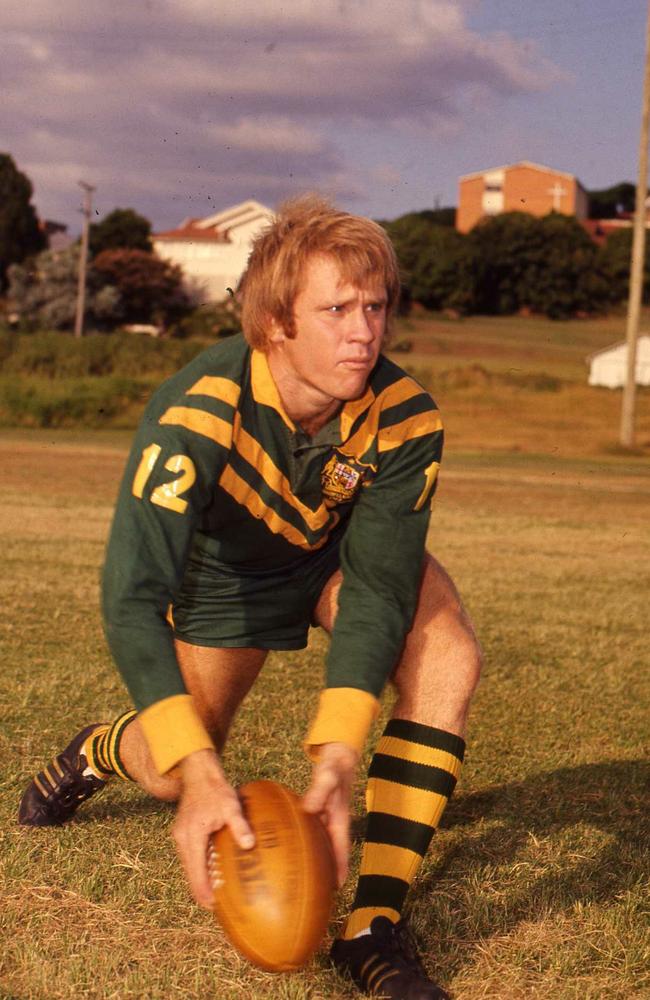
“In ’73 I was a bit intimidated by the NSW guys, especially the stars,” Lang said.
“I still had a healthy respect for them when I came home, but to a certain degree they had come back to earth.
“Playing that (1980) grand final at the SCG it didn’t have the same atmosphere as Lang Park. It was so noisy at Lang Park on grand final day that you had to run over to a teammate and yell in his ear to be heard.”
Lang’s favourite moment as a player was the 1972 Brisbane grand final when Easts beat Valleys 16-15.
Tigers lock forward Jeff Fyfe kicked the first field goal of his career just seconds before referee Henry Albert blew the whistle for full-time.
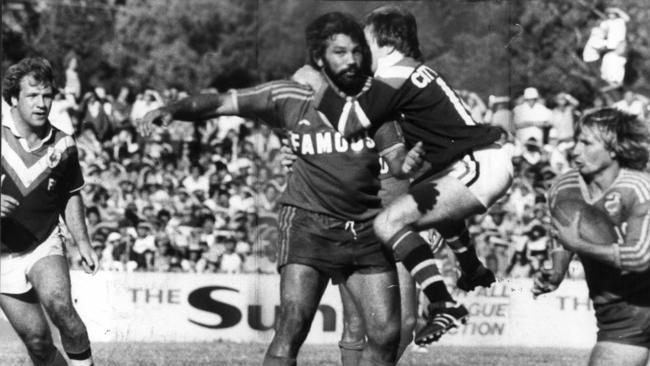
As a coach, Lang’s most cherished memory is Penrith’s 18-6 win over the Ricky Stuart-coached Roosters in the 2003 NRL grand final — especially as his son Martin was in the Penrith front row. But Lang argues that all grand final wins have been celebrated equally down through the ages, whether in an over-35 touch competition or a ‘‘Sydney’’’ grand final.
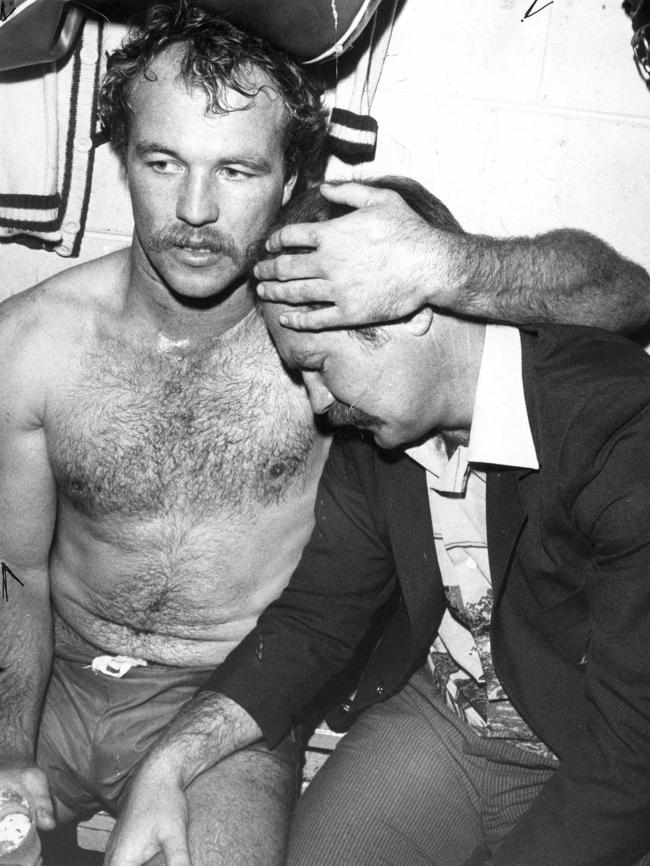
Lang won three Brisbane premierships (1972, ’77 and ’78) with Easts as a player and two as a coach — in 1983 and 1991.
Former Toowoomba star halfback Wayne Lindenberg was prominent in the 1977 and 1978 grand final wins and was the difference in 1983 when Easts beat minor premiers Redcliffe 14-6 in the grand final.
Man of the match in the 1983 grand final was young second rower Trevor Paterson, who still rates it the highlight of his career, even though he subsequently played six seasons in Sydney with the Roosters.
“It was a dream come true (winning the ’83 title),” he said. “I played with a group of incredibly gifted teammates — tough, hungry. We wanted to be the best.”
Paterson found the training much harder in Sydney when he joined the Roosters, but relished the fact he was paid decent money for playing a game he loved.
“In Brisbane we used to get a little money for footy and be on the dole,” he said. “In Sydney, every game was tough. You had to be totally committed, or you were in trouble.”
Paterson was unemployed when announced as 1983 Rothmans Gold Medal winner as Brisbane’s best and fairest footballer.
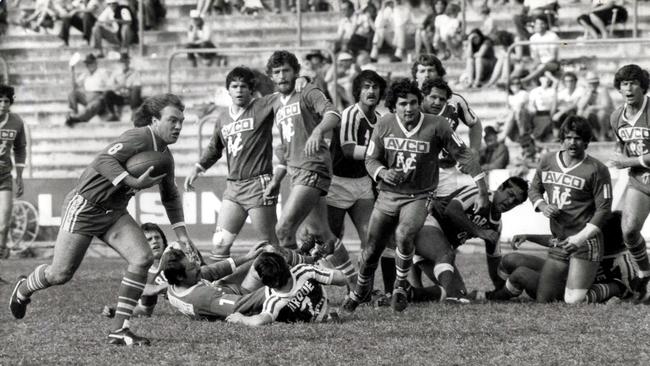
Brisbane football in the 1970s was not as professional as Sydney, but Lang has no regrets about rejecting offers to head south.
“I just loved playing for Easts and Queensland,” he said.
“I married young and the lifestyle in Queensland was great. I signed one-year contracts. I dealt with (Easts president) Jack Atkin who was a mentor to me — a man’s man, a bloke I knew I could trust. My contract was split between a guaranteed amount, and bonuses.
“My contract was also subsidised by the QRL and I worked at Royal Brisbane Hospital (as a tradesman), so I earned good money. If I had gone to Sydney, it probably would have been at the end of the 1975 season.
“Artie Beetson phoned me. Easts had just won two premierships with Arthur as skipper and Jack Gibson the coach. Elwyn Walters was getting to the end of his career and they were looking for a hooker. But I stayed in Queensland.
‘‘(Former Brisbane Brothers, Queensland and Australian skipper) Peter Gallagher always said, ‘you don’t have to go to Sydney to prove yourself. You can prove yourself in interstate football’.”
The crowd of 25,000 for the 1983 grand final was disappointing but perhaps understandable given the standard of football in previous weeks had been poor. By contrast the Sydney finals featured brilliant football.
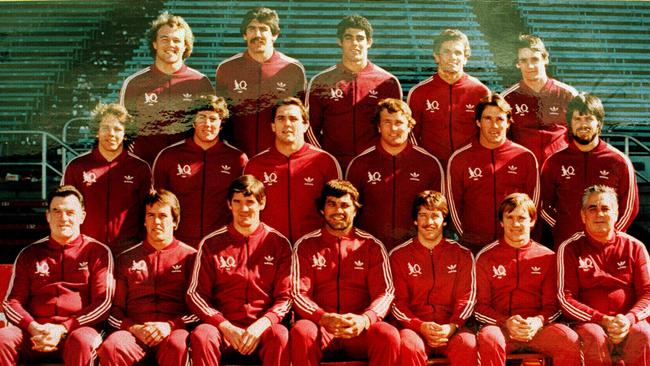
All manner of reasons were given for the loss of 11,000 spectators compared with the 1982 grand final, including “The Great Aussie Picnic” at New Farm Park.
The most feasible explanation was the absence of the strongly supported Wynnum-Manly Seagulls, who had been eliminated by Valleys in a playoff for fourth spot.
Lang recalls a conversation he had with former Queensland and Australian teammate David Wright in the mid-1980s, as Brisbane crowds plummeted.
“We agreed that a team in the Sydney comp had to happen,” Lang said.
“We were getting Sydney games on TV and many people were following teams down there instead of local sides. I don’t like to raise the spectre of the Super League war, but when clubs down there were faced with the prospect of being turfed out of the competition in the mid-1990s, they talked about the wonderful traditions of those clubs.
“Well we had a wonderful heritage in Brisbane, too.
‘‘Valleys were the South Sydney of the Brisbane competition and now they’re gone. Brothers fell over and they had a great tradition.”
In 1984 it seemed Queensland was the centre of the league universe: the Maroons decisively retained their State of Origin title; Australia — with six Brisbane-based players and one from Gladstone (Greg Conescu) — won all three Tests against Great Britain. Combined Brisbane won the National Panasonic Cup, beating Lang’s old club the Roosters in the grand final and Wally Lewis won the Golden Boot as the world’s best player.
Lewis captained Brisbane, Queensland and Australia but, strangely, at Wynnum-Manly the skipper was hooker David Green.
Wynnum belted Souths 42-8 in the grand final with Lewis among the try scorers and there was talk of a challenge match against Sydney premiers Canterbury.
It was felt that on their day, Wynnum — with internationals Lewis, Gene Miles, Greg Dowling and Colin Scott — could beat any opposition. But there also was the realisation Wynnum would not have the depth or mental toughness to contest the Sydney premiership week in, week out.
The Broncos were to experience these shortcomings in their first few seasons.

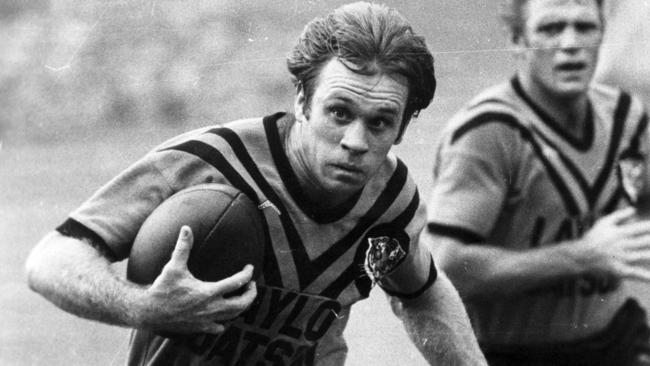
Add your comment to this story
To join the conversation, please log in. Don't have an account? Register
Join the conversation, you are commenting as Logout
‘We’re finally all together’: Hunt’s joy as Broncos Dream Team deploys
Ben Hunt opens up in his first interview since being cleared to return from a two-month hamstring battle covering his injury frustrations, premiership aspirations and role in the Broncos fab-four spine rotation.
Brisbane are purring and Maguire deserves the credit
The Brisbane Broncos season has been far from a smooth ride, but with the finals now in reach the critics of coach Michael Maguire have gone silent and his players have begun to play for him.